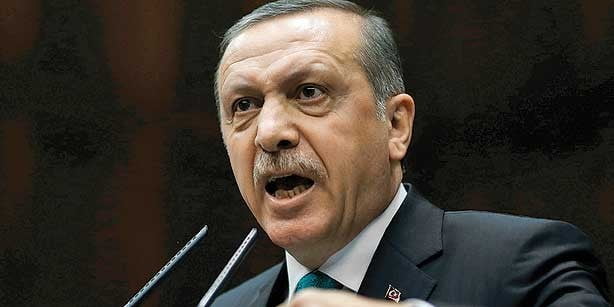Turkey’s Global Anti-Gülen Crusade Puts Tbilisi in Diplomatic Bind

Date posted: March 2, 2018
Ani Chkhikvadze
Mustafa Emre Çabuk is out of prison but not out of trouble.
The Turkish national, who for the past 15 years ran a Gülen school in the Georgian capital, Tblisi, is the latest international educator caught up in Turkish President Recep Tayyip Erdogan’s anti-Gülenist campaign.
Çabuk is at home under security services protection after nine months’ detention, waiting to learn whether he will be extradited to Turkey, where he is charged with terrorism and would face nearly certain long-term imprisonment.
“I am not supporting any terrorist group. I am just a teacher,” Çabuk told VOA after completing the maximum detention allowed without trial under Georgian law.
“I was in prison for nine months for nothing,” he said. “For nothing.”
Georgian dilemma
As traumatic as it is for Çabuk personally, his case also presents a dilemma for the Georgian government, which is caught between its human rights obligations as a country that aspires to become a member of the European Union, and economic pressure from its larger neighbor and major trading partner, Turkey.
No evidence has been presented linking Çabuk to the July 2016 coup attempt in Turkey, which Erdogan blamed on his onetime ally and now archrival Fethullah Gülen, prompting a wide-ranging purge of Gülen’s associates in Turkey and attempts to shut down the former imam’s global network of religious and secular schools.
Compliance with Turkish demands has varied from country to country, with the United States, for example, rejecting repeated requests for the U.S.-based cleric’s extradition on the ground that Ankara has not provided satisfactory evidence of his participation in the coup.
“The more vulnerable you are, the likelier you will be to acquiesce,” Henri Barkey, an international affairs expert with Lehigh University, told VOA, adding that a lack of international scrutiny allows Ankara to bully less powerful neighbors, Central Asian and African countries.
“In the case of Georgia, Tbilisi has to balance EU concerns,” he said. “Brussels, while not very powerful in getting the Turks to retract policies, can nonetheless apply pressure on Tbilisi.”
The U.N. Committee Against Torture has appealed to Georgia to delay a decision on whether to extradite Çabuk pending a U.N. committee discussion.
Levan Asatiani, a regional campaign director for Amnesty International, said any move toward extradition would represent a criminal act.
“According to international law, it is prohibited to transfer a person to a state where this person is more likely to be subjected to torture, inhuman treatment or other serious human rights violations,” Asatiani told VOA, adding that Georgian law prohibits extradition of a person in this situation.
“Georgia is surrounded by repressive political regimes where human rights protection became a scarce resource,” he said. “But Georgia has built a very positive image for itself in the region, and so it must now maintain this image and show by its action that there is no exception when it comes to accountability.”
Few choices for Georgia
But Soner Cagaptay, head of Washington Institute’s Turkey Research Program, said, “There is very little countries such as Georgia can do when faced with Turkish requests to extradite supporters of Gülen movement.”
“Erdogan sees the movement as his eternal enemy and will use all his political muscle to make sure that countries where the Gülen movement has had networks, especially Turkey’s neighbors, cooperate with him on this issue, or at least lend him a sympathetic ear,” Cagaptay said.
Tornike Sharashenidze, an independent political analyst based in Tbilisi, echoed that sentiment, saying Georgia has no choice but to accommodate Turkey’s demands.
“We are a small country with no luxury to feel hurt over the violation of human rights by Turkey,” he told VOA. “We are not the United States that has power to refuse to extradite Gülen [himself].”
Çabuk, who has lived in Georgia since 2002, was arrested by Georgian police in May 2017, immediately after a state visit by Turkish Prime Minister Binali Yildirim.
After being held for the maximum time allowable without trial, the 38-year-old high school principal is home with his wife and two children, where he is guarded around the clock by the same Georgian law enforcement agency that detained him in May.
His release, he said, has offered only a brief respite from the grinding mental anguish that accompanies what he called his status as a political prisoner.
“When the prosecutor read to me what Ankara is blaming me for, I couldn’t hold myself, I started to cry,” Çabuk said of the first day of his detention.
“I worked 15 years in Georgia together with my Georgian people. My honor was damaged so much,” he added. “I felt really bad, as a human, as a family man. I am a father and I am a teacher, but blaming me for terrorism — that is very abstract.”
Çabuk’s school, Demirel College in Tbilisi, which is actually a high school, has had its accreditation revoked but remains open despite the charges against its principal. Early in 2017, however, Georgia shuttered Çabuk’s old workplace, a Gülen school in the Black Sea port city of Batumi.
Çabuk said he trusted the Georgian law enforcement agency protecting him, but that he remained haunted by the story of Afgan Mukhtarli, an Azerbaijani journalist based in Tbilisi who in May 2017 was abducted and spirited to a police station in Baku, where government officials recently sentenced him to six years in prison.
Although Mukhtarli was not under Georgian police protection — there had been no calls for his extradition to Baku — international condemnation of his strong-armed imprisonment was swift, leaving Georgia’s human rights record under increased scrutiny.
No court date has been set for a decision on Çabuk’s fate.
This story originated in VOA’s Georgian service.
Source: Voice of America , March 1, 2018
Tags: Education | Europe | Georgia | Hizmet-inspired schools | Persecution of Hizmet by Erdogan |

























